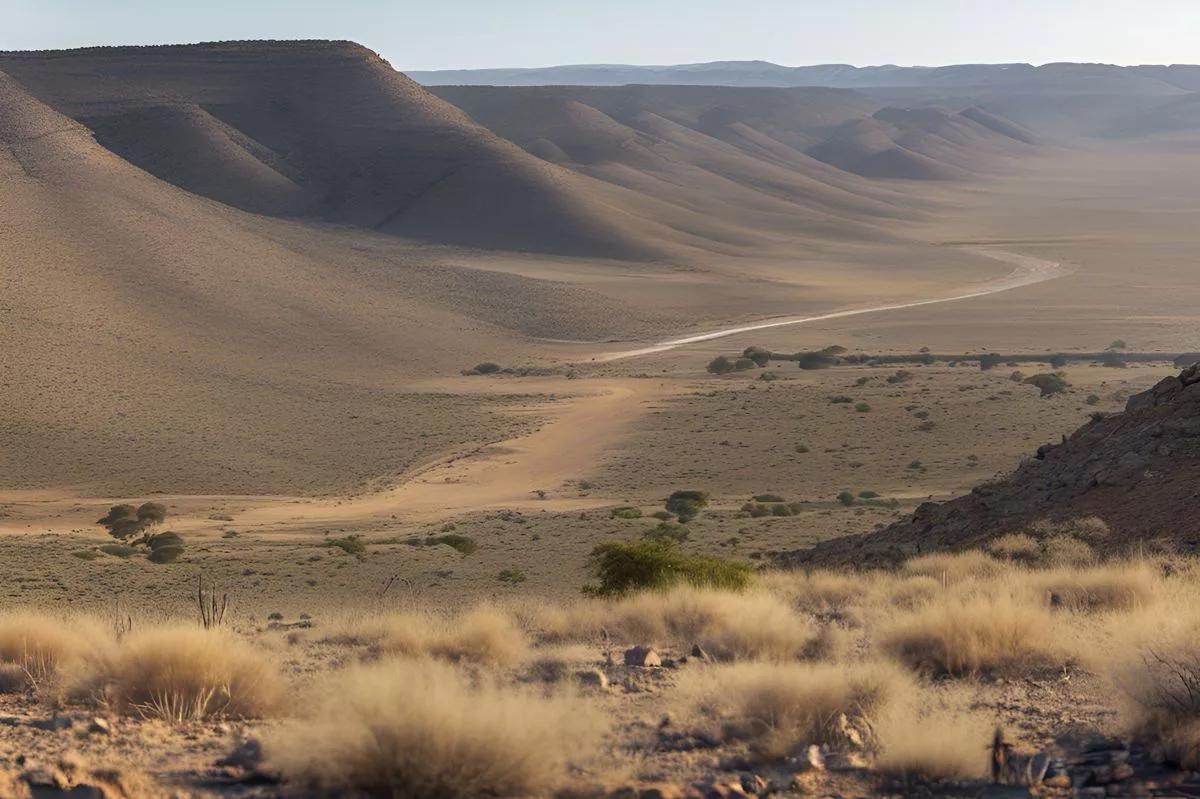In the Northern Cape of South Africa, the government is helping small businesses grow and thrive. The Department of Small Business Development (DSBD) is connecting with local entrepreneurs by providing training, funding, and support. This initiative will bring life back to the economy in this beautiful region, known for its rich culture and stunning landscapes. The upcoming visit from the Portfolio Committee will allow them to see first-hand how small businesses, from farms to creative studios, are shaping a brighter future for their communities. Through collaboration and understanding, they aim to empower these businesses, ensuring their success contributes to a stronger economy for all.
How is the Northern Cape empowering small enterprises?
The Northern Cape is empowering small enterprises through initiatives led by the Department of Small Business Development (DSBD). These initiatives include direct interactions between policymakers and entrepreneurs, tailored support such as training and funding, and a focus on economic diversification across various sectors, ensuring sustainable growth.
Unveiling Economic Revival
In the sunlit expanse of South Africa’s Northern Cape, a transformative initiative is taking shape. The region, renowned for its diverse cultural landscape and breathtaking scenery, is primed for a thorough exploration of small business growth. Spearheaded by the Department of Small Business Development (DSBD), this mission aims to breathe new life into the local economy. The Portfolio Committee on Small Business Development’s anticipated visit promises not only to oversee these activities but also to delve into the broader goals of economic revival and empowerment unique to this province.
Starting on October 8th, 2024, the committee’s four-day expedition will take them to diverse towns and communities, where they will interact directly with small businesses. The journey kicks off in Delportshoop, Longlands, Barkley West, and the historic city of Kimberley. Here, the committee will explore a range of industries, from catering and agriculture to plumbing and beyond, which are vital to the region’s economic vitality. These interactions transcend mere evaluations; they represent a meaningful dialogue between policymakers and business owners, fostering a deep understanding of the unique challenges and accomplishments of these enterprises.
The Northern Cape stands out for its vast landscapes and limited population, offering both challenges and opportunities for small businesses. While mining has historically defined the region, there’s now a shift towards economic diversification. The DSBD’s efforts are crucial in this transition, supporting businesses poised to thrive in such an environment. Interactions with firms like DCO Holdings and Letshotshwa reveal how these initiatives translate into tangible success stories, providing models that could be replicated in other areas.
The Historical and Cultural Tapestry
The story of small business development in the Northern Cape is intertwined with the area’s rich historical and cultural fabric. Kimberley, for instance, is more than just a city; it’s a symbol of past economic prosperity, particularly during the diamond rush of the late 1800s. Today, Kimberley represents a microcosm of rejuvenation, where modern enterprises strive to redefine prosperity. The committee’s engagement with the Northern Cape Agriculture Incubator provides a firsthand look at the resurgence of agricultural innovation, blending technological advancements with the region’s enduring agrarian traditions.
As the oversight journey progresses, the committee heads to Upington in the ZF Mgcawu District Municipality. Here, the focus broadens to include creative industries and fast-food businesses—sectors that may appear modest yet play vital roles in the economic landscape. Visits to the Masakhane Art Centre and Amor De Dios Creative Studio highlight the intersection of culture and commerce, reflecting a global trend where creative economies are gaining recognition as significant economic contributors.
The final leg of the committee’s journey takes them to Kuruman and Kathu in the John Taolo Gaetsewe District Municipality. This segment includes visits to enterprises such as Thanodi Spare and Stationary and Resemeletse Motlopi Coffee Project, showcasing the diversity of business innovation in the region. The committee’s presence underscores the significance of local businesses in nurturing sustainable economies, an essential component of regional development strategies.
Nurturing Small Business Growth
These visits exemplify the DSBD’s commitment to nurturing small businesses across various sectors. The Northern Cape’s unique challenges, such as its distance from major markets and harsh climatic conditions, necessitate tailored interventions. The oversight visit serves to assess the effectiveness of these strategies, ensuring they cater to the needs of local entrepreneurs while aligning with broader national development goals.
Moreover, the committee’s work highlights the crucial role of government in creating an environment where small enterprises can flourish. By offering support through training, funding, and market access, the DSBD strives to empower entrepreneurs, many of whom play pivotal roles in job creation and community upliftment. This engagement underscores a broader vision of inclusive economic growth—a narrative that has echoes in various historical and contemporary contexts across the globe.
The significance of this visit extends beyond immediate economic metrics. It embodies a story of hope and empowerment, reflecting a societal commitment to improving livelihoods and fostering an entrepreneurial spirit. As the committee traverses the Northern Cape, they not only evaluate but also celebrate the resilience and creativity of small business owners who, despite challenges, continue to drive the economic heartbeat of their communities.
A Collaborative Future
This dialogue between policymakers and entrepreneurs echoes broader historical movements where governments have recognized the influence of grassroots economic activity on national prosperity. Just as Renaissance patrons fueled artistic innovation, today’s governments must support entrepreneurial ventures, recognizing that the vitality of small businesses is a cornerstone of economic development.
The oversight visit, therefore, is not merely an administrative task but a journey into the heart of South Africa’s economic future. It is a narrative of collaboration, where the insights gained and relationships forged become the foundation for sustained economic resilience. Through these engagements, the Portfolio Committee on Small Business Development aims to ensure that Northern Cape’s small enterprises are not just surviving but thriving, contributing to a robust and inclusive national economy.
FAQ: Empowering Small Enterprises in South Africa’s Northern Cape
How is the Northern Cape empowering small enterprises?
The Northern Cape is empowering small enterprises through initiatives led by the Department of Small Business Development (DSBD). These efforts include direct interactions between policymakers and entrepreneurs, tailored support such as training and funding, and a focus on economic diversification across various sectors to ensure sustainable growth.
What role does the Portfolio Committee play in small business development?
The Portfolio Committee on Small Business Development is conducting visits to various towns in the Northern Cape to engage directly with local entrepreneurs. Their goal is to assess the progress of small businesses, understand the unique challenges faced, and explore how these enterprises contribute to the region’s economic revival.
When is the Portfolio Committee’s visit scheduled?
The Portfolio Committee’s four-day visit is scheduled to start on October 8th, 2024. They will travel to diverse communities, including Delportshoop, Longlands, Barkley West, and Kimberley, to interact with local small businesses across various industries.
What types of industries are being highlighted during the committee’s visit?
The committee will showcase a variety of industries vital to the Northern Cape’s economy, including agriculture, catering, plumbing, and creative industries. Their interactions will highlight how these sectors are integral to the region’s economic vitality and diversification.
How is the government supporting small businesses in the Northern Cape?
The government, through the DSBD, is supporting small businesses by providing training, funding, and market access. These initiatives aim to create an enabling environment where small enterprises can flourish, ultimately contributing to job creation and community upliftment.
Why is the Northern Cape significant for small business development?
The Northern Cape, with its unique challenges such as limited population density and harsh climatic conditions, presents both opportunities and obstacles for small businesses. The region’s historical context, rich culture, and ongoing initiatives for economic diversification make it a focal point for understanding how small enterprises can drive regional development and economic resilience.












